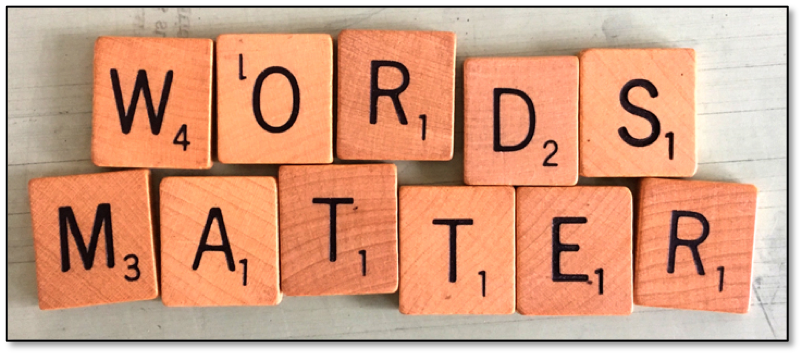September, 2020 Monthly Reflection
September 3, 2020
Words Do Make a Difference
By Kris Wade, Executive Director of The Justice Project KC, and Member of The Alliance Survivor Services Working Group.
As awareness of present-day slavery expands, more attention is being given to human trafficking through prostitution. Prostitution is often viewed as a “victimless crime.” Nothing could be further from the truth. Hazards include rape, robbery, assault, exposure to sexually transmitted illnesses, and most unfortunately death at the hands of violent tricks, drug dealers, or pimps. Because of their poverty, homelessness, hunger, and /or addiction, many of the women served by the Justice Project KC have been exploited, victimized, and severely traumatized through prostitution.
As law enforcement, courts, and service providers begin to attack this devastating crime and interact with survivors, it is apparent that a quick tutorial on terminology is needed. Words have power, and the labels and descriptive language we use contribute to our perceptions of commercial sex trafficking and the victims produced by this terrible crime. Prostitution is one of the most harmful manifestations of human trafficking. The importance of proper terminology when addressing this issue can not be underestimated. Words make a difference in how those used in prostitution are perceived. Harmful labels lead to misunderstanding and bias toward those who have been used in prostitution. Negative labels also contribute to low self-esteem and self-hatred in those who have been harmed by experiencing prostitution. As a survivor organization, we feel the sting of these labels and see the harm inflicted by such words.
The word “prostitute “is generally perceived as negative and derogatory. It implies that someone is “dirty” a “whore” a “slut”, a bad person who is unworthy, and a social outcast. It does not take into consideration that the individual is a human being, one who may be someone’s mother, daughter, sister, or brother. The word dehumanizes this population and perpetuates negative stereotypical labels. At the Justice Project KC we only use “prostitute“ as a verb. Prostitution is something a person does, not who that person is. We view prostitution as an exploitive form of violence against persons, and a human rights violation. We advocate for the use of other terms like “prostituted persons,” “persons used in prostitution”, or “sexually exploited persons.” These terms do not stigmatize victims and describe prostitution as an abusive experience, not a personal characteristic of an individual.
Two other terms frequently seen as “politically correct” we do not use are “Sex Work and Sex Worker.” These terms are now widely used instead of “prostitute” by those working in trafficking abolition. While these terms may be well-intentioned, it is our belief they infer prostitution is somehow “work” an occupation, a job. This tends to imply a normalization of prostitution as a career choice. Sex trafficking through prostitution is human slavery. It is not “work.” As survivors we have a keen understanding of exploitation.
When discussing prostitution and its survivors please remember to use phrases like “prostituted person” “sex industry survivor” or “victim of commercial sexual exploitation.” These terms relay the idea that persons used in prostitution are entangled in an inherently dangerous, traumatizing, exploitive system that victimizes human beings. They are girls, boys, men, and women who have been dehumanized not only by prostitution but also by the terminology used to describe them. They are individuals who deserve dignity, respect, compassion, and mercy just like anyone else.
Tags: Prostitution, Survivor, WordsCategory: Monthly Reflections, Survivor Support, The Alliance to End Human Trafficking

